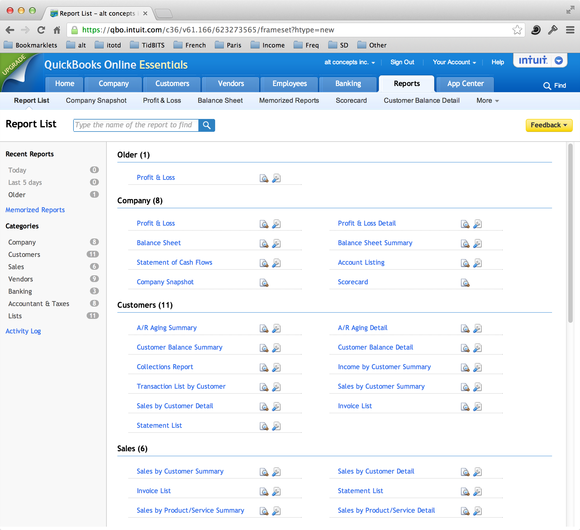Doxygen 1.8.12 Free For Mac
| Developer(s) | Dimitri van Heesch |
|---|---|
| Initial release | 26 October 1997; 23 years ago[1] |
| Stable release | |
| Repository | |
| Written in | C++ |
| Operating system | Cross-platform |
| Type | Documentation generator |
| License | GNU GPLv2 |
| Website | www.doxygen.nl |
Doxygen (/ˈdɒksidʒən/DOK-see-jən)[3] is a documentation generator,[4][5][6][7] a tool for writing software reference documentation. The documentation is written within code, and is thus relatively easy to keep up to date. Doxygen can cross reference documentation and code, so that the reader of a document can easily refer to the actual code.
Doxygen is free software, released under the terms of the GNU General Public License version2 (GPLv2).
- Doxygen version 1.8.5 throws many 'Internal Inconsistency' errors when parsing.idl files; doxygen.sty.h was not ignored and not included/generated properly; testing dir was missing from 'make archive' usage: make -d print dev doxygen options; Release 1.8.5 (release date ) Changes. Doxygen's source code is now managed using git.
- At least 600MB of free space on your computer plus the amount of space you want to store in your MediaFire account. New in MediaFire Desktop 0.15.2.4511 Beta: Screenshot annotations now have color.
Design[edit]
OpenFOAM is a free, open source CFD software package released free and open-source under the GNU General Public License through www.openfoam.com. It has a large user base across most areas of engineering and science, from both commercial and academic organisations.
Like Javadoc, Doxygen extracts documentation from source file comments. In addition to the Javadoc syntax, Doxygen supports the documentation tags used in the Qt toolkit and can generate output in HyperText Markup Language (HTML) as well as in Microsoft Compiled HTML Help (CHM), Rich Text Format (RTF), Portable Document Format (PDF), LaTeX, PostScript or man pages.
Uses[edit]
Programming languages supported by Doxygen include C,[8]C++, C#, D, Fortran, IDL, Java, Objective-C,[9]Perl,[10]PHP,[11]Python,[12][13] and VHDL.[14] Other languages can be supported with additional code.
Doxygen runs on most Unix-like systems, macOS, and Windows.
The first version of Doxygen borrowed code from an early version of DOC++, developed by Roland Wunderling and Malte Zöckler at Zuse Institute Berlin. Later, the Doxygen code was rewritten by Dimitri van Heesch.
Doxygen has built-in support to generate inheritance diagrams for C++ classes. For more advanced diagrams and graphs, Doxygen can use the 'dot' tool from Graphviz.[15]
Example code[edit]
The generic syntax of documentation comments is to start a comment with an extra asterisk after the leading comment delimiter '/*':
Many programmers like to mark the start of each line with space-asterisk-space, as follows, but that is not necessary.

Many programmers avoid using C-style comments and instead use C++ style single line comments. Doxygen accepts comments with additional slash as Doxygen comments.
The following illustrates how a C++ source file can be documented.


An alternative approach for documenting parameters is shown below. It will produce the same documentation.
Richer markup is also possible. For instance, add equations using LaTeX commands:
Doxygen source and development[edit]
The Doxygen sources are currently hosted at GitHub, where the main developer, Dimitri van Heesch, contributes under the user name 'doxygen'.[16] Doxygen is written in C++, and comprises over 300,000 source lines of code. For lexical analysis, the standard tool Lex (or its replacement Flex) is run on over 35,000 lines of lex script. The parsing tool Yacc (or its replacement Bison) is also used, but only for minor tasks; the bulk of language parsing is done by native C++ code. The build process is based on CMake and also involves some Python scripts.
See also[edit]
References[edit]
- ^ANNOUNCE: doxygen 0.1Archived October 4, 2011, at the Wayback Machine, Announcing: the first release of Doxygen, a C++ documentation system. , From: Dimitri van Heesch, Date: Sun, 26 Oct 1997, Qt-interest Archive
- ^http://www.doxygen.nl/manual/changelog.html
- ^FAQ: How did doxygen get its name?
- ^Perkel, Jeffrey M. (2015-11-22). 'Get With the Program: DIY tips for adding coding to your analysis arsenal'. The Scientist (Journal). The Scientist.
- ^Sabin, Mihaela (2015-11-22). 'Doxygen'. OpenComputing (Wiki). University of New Hampshire. Archived from the original on 2015-11-23.
- ^'Doxygen'. Free Software Directory (Wiki). 2015-11-22.
- ^'Documentation'. Rosetta Code (Wiki). 2015-11-22.
- ^'Documentation: C'. Rosetta Code (Wiki). 2015-11-22.
- ^'Documentation: Objective-C'. Rosetta Code (Wiki). 2015-11-22.
- ^http://search.cpan.org/perldoc?Doxygen%3A%3AFilter%3A%3APerl
- ^http://www.doxygen.nl/manual/starting.html
- ^'Automatic Python API documentation generation tools'. python.org wiki (Wiki). 2015-11-22.
- ^https://pypi.python.org/pypi/doxypypy/
- ^http://www.doxygen.nl/manual/starting.html
- ^http://www.doxygen.nl/manual/diagrams.html
- ^https://github.com/doxygen/doxygen
External links[edit]

- Official website

Doxygen For Windows 10
About the App
- App name: doxygen
- App description: Generate documentation for several programming languages
- App website: http://www.doxygen.org/
Install the App
- Press
Command+Spaceand type Terminal and press enter/return key. - Run in Terminal app:
ruby -e '$(curl -fsSL https://raw.githubusercontent.com/Homebrew/install/master/install)' < /dev/null 2> /dev/null
and press enter/return key.
If the screen prompts you to enter a password, please enter your Mac's user password to continue. When you type the password, it won't be displayed on screen, but the system would accept it. So just type your password and press ENTER/RETURN key. Then wait for the command to finish. - Run:
brew install doxygen
Doxygen 1.8.12 Free For Mac Os
Done! You can now use doxygen.